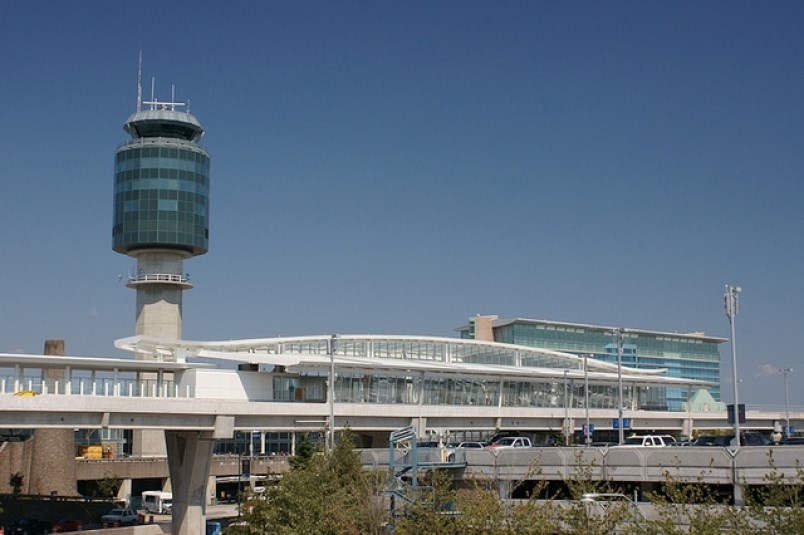If ever there was a case of “if it ain’t broke, don’t fix it,” it would be Vancouver International Airport (YVR).
YVR has won a cargo-hold of awards for everything from its green technology, to its service efficiency, to its remarkable design and art installations.
Add to that, the Man in Motion, Rick Hansen, has called it the most accessible airport in the world — and he’s been to a few.
Not everyone in Richmond has been thrilled with the airport’s noise or its impact on the ecologically sensitive area surrounding it, but at least they’ve had a voice. One of my early reporting assignments for the Richmond News was covering a two-day conference hosted by YVR’s then CEO, Larry Berg.
Everyone from members of the public to a representative from the Suzuki Foundation (David Suzuki’s daughter, actually), and local politicians and airline representatives, were there to discuss Berg’s 40-year plan.
I doubt we’d see that kind of community engagement if the airport was sold off to private investors — an idea the federal Liberals appear to be considering (see page 7).
Currently, YVR is a not-for-profit, which doesn’t mean it doesn’t make a profit, rather the profit it does make goes back into servicing the travelling public. (In fact, that’s why the expression has changed from non-profit to not-for-profit; a business may make a profit, but that’s not its raison d’tre.) Regardless, to turn YVR into a for-profit entity, would mean an end to the kind of consultation we’ve seen to date.
Moreover, a good chunk of the money that currently goes into giving YVR the polish it has, would be funnelled into servicing lenders and rewarding shareholders.
The not-for-profit model is, in part, what has made YVR a standout facility. It would be a shame to see that dismantaled.
Moreover, the airport’s financial model sets an example. We tend to equate not-for-profit with charities and for-profit with business. But we needn’t limit ourselves.
YVR shows that not-for-profit and business success can go together. Mountain Equipment Co-op (MEC), one of the largest outdoor equipment stores in Canada, is another example.
But back to the point, the rationale for selling YVR off to private investors is to help pay for the federal government’s planned infrastructure program. There’s a certain logic there: the government could see a big return from the sale, and infrastructure has to be paid for somehow. But it’s extremely short-sighted, and grounding success doesn’t make sense in any business model.



